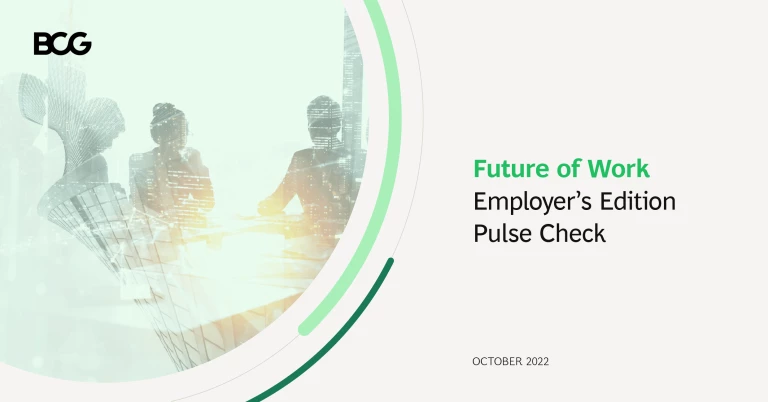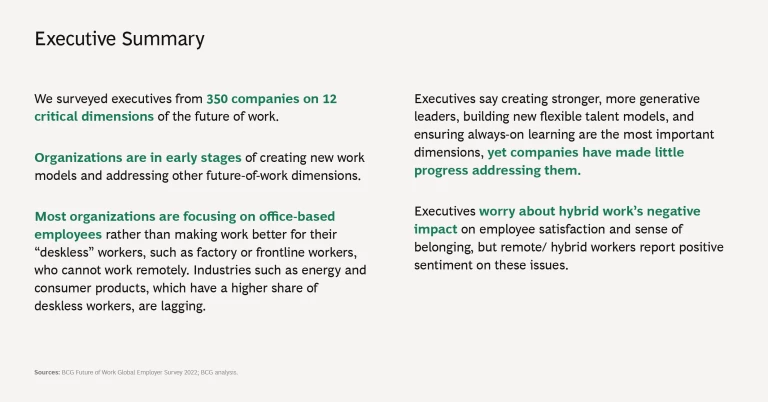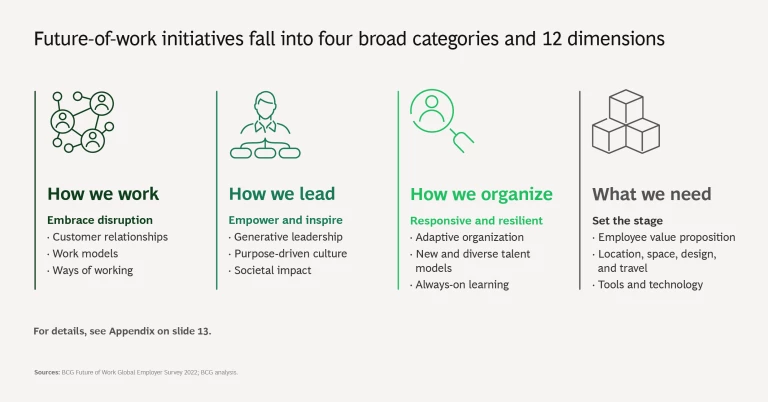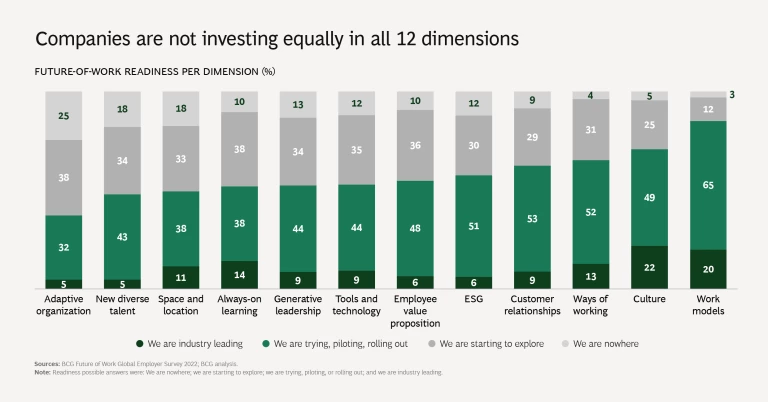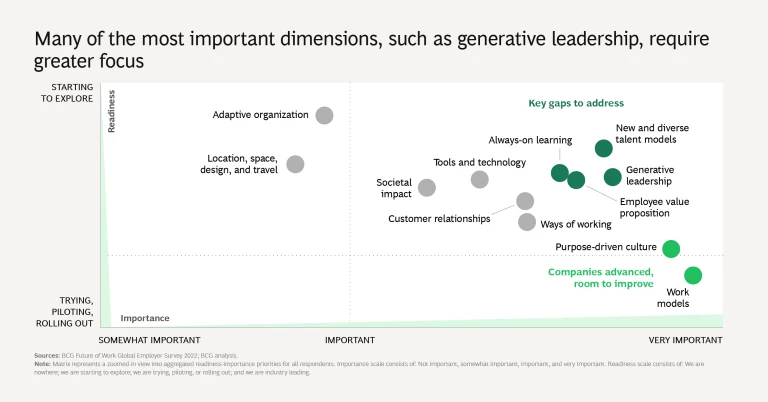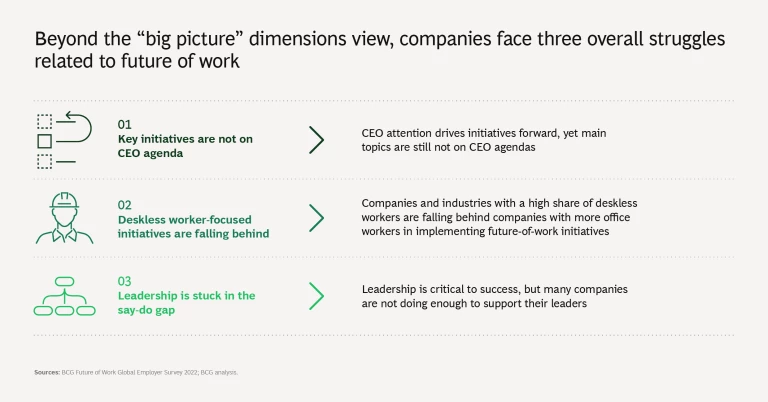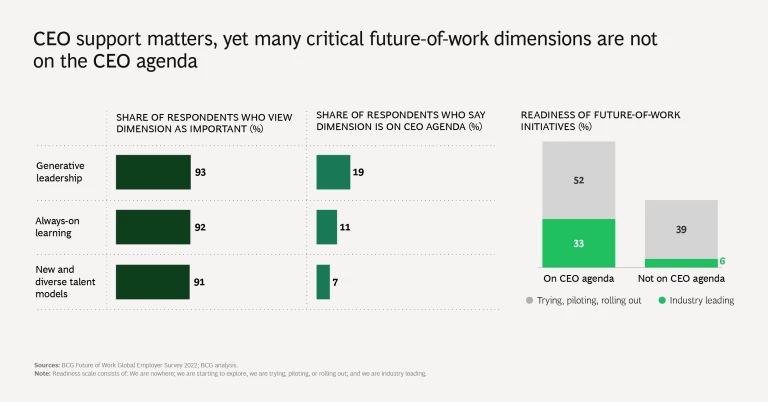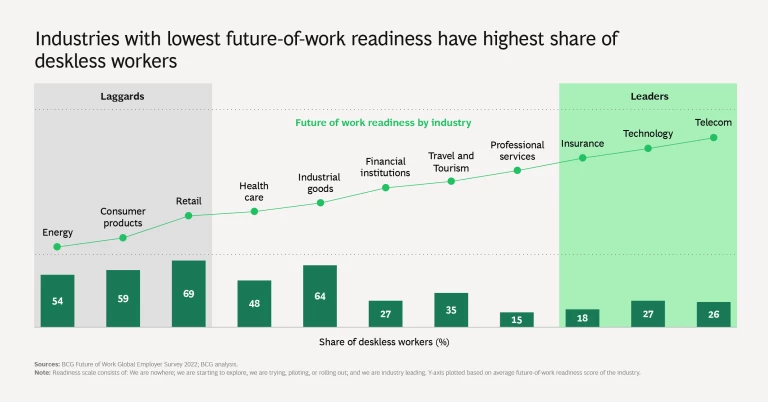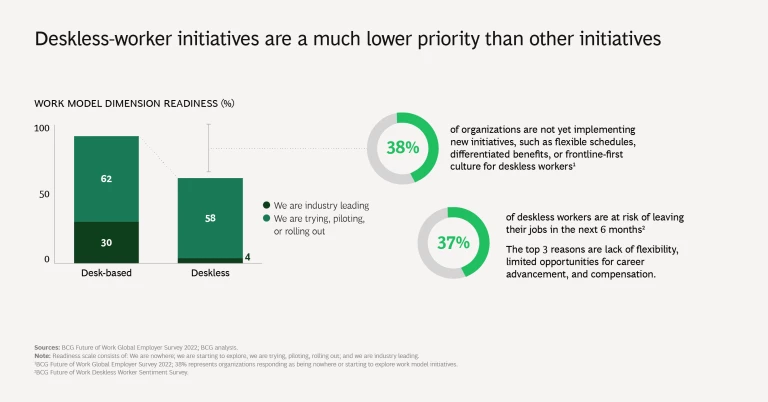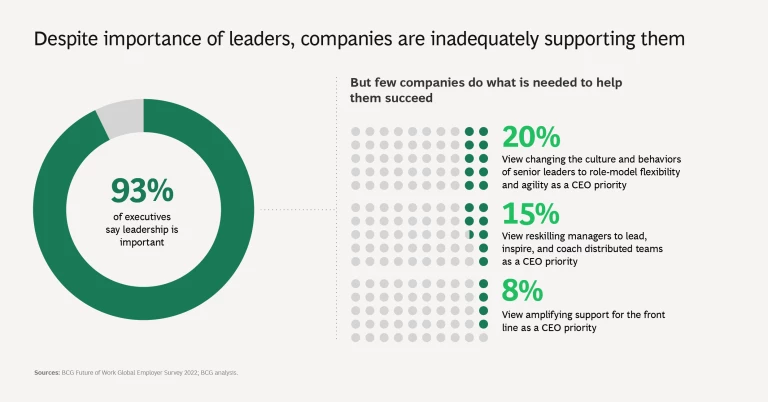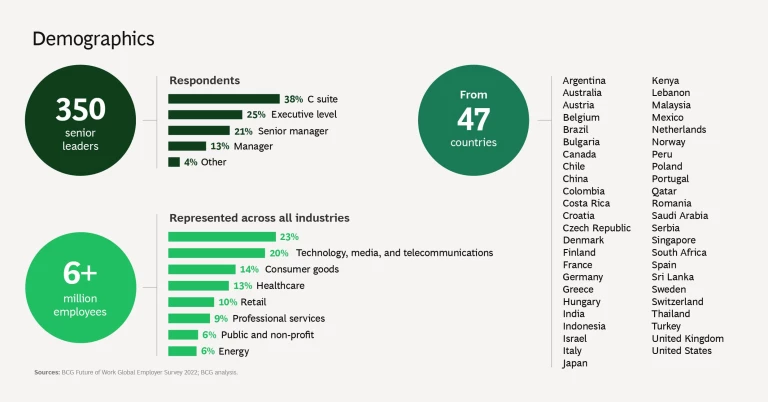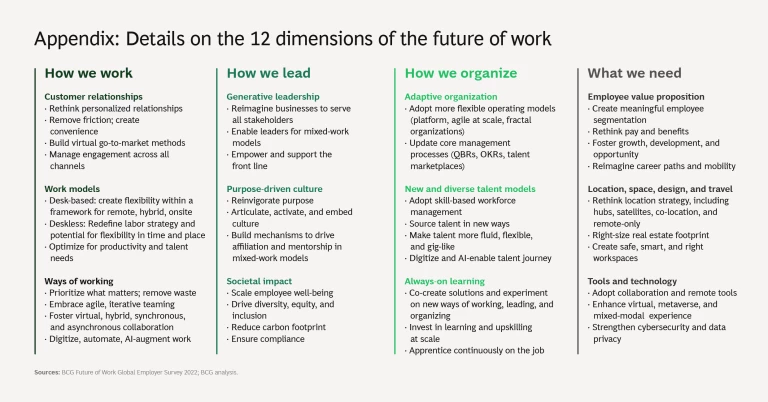When people think about the future of work, remote and hybrid work are often the first things that come to mind. But the topic is broader and deeper—and includes leadership, culture, customers, talent, learning, reskilling, and more. To understand how organizations are preparing for the future, we surveyed executives from approximately 350 companies, more than one third of them in the C-suite, across major industries and 47 countries. Their companies collectively employ more than 6 million people.
The survey asked leaders their perspectives on the importance of 12 future-of-work dimensions—and their company’s progress on this front. We found that companies are still early in their pursuit of a better future of work in many critical dimensions. Executives said their organizations lagged on key people-oriented dimensions, such as generative leadership, always-on learning, and new and diverse talent models—despite ranking them as being very important.
Even where they are making relatively more progress, specifically on purpose-driven culture and work models, organizations still have more work to do. Most companies, for example, are still trying, piloting, or rolling out new work models. For each dimension, only 20% or less consider themselves to be industry leading.
The survey also shows that companies are focusing more on office-based workers, who can work remotely, and are less focused on the “deskless workers” who make up more than three quarters of the global workforce. These deskless workers—in factories, shops, hotels, restaurants, and hospitals—cannot work from home. Only 8% of executives say that amplifying support for the deskless worker is a CEO priority. The telecom, technology, and insurance industries are top-ranked in their future-of-work readiness, and only about one quarter of their workers or fewer are in deskless jobs. Energy, consumer products, and retail—the three lowest-ranked industries on future-of-work readiness—employ deskless workers for more than half their jobs. The survey results are a stark reminder that deskless employees who continued to work on site during the pandemic risk losing out on the benefits of future-of-work innovations.
Stay ahead with BCG insights on people strategy
The surveyed executives recognize the need for strong, generative leaders to realize a better future of work, but they also say their companies are not doing enough to help leaders develop the necessary capabilities. Only 15% of respondents said that reskilling managers to lead, inspire, and coach distributed teams was a CEO priority, and only 20% see changing the culture and behaviors of senior leaders to role-model flexibility and agility as being a CEO priority. But, when a future-of-work initiative is on the CEO agenda, executives are nearly twice as likely to report progress on it. For the future of work to work, CEOs need to be leading from the front.
The accompanying slide show illustrates these findings in more detail. The analysis also relies on findings from the BCG Future of Work Deskless Worker Survey, conducted in March and April 2022, which surveyed 7,104 deskless workers in Australia, France, Germany, India, Japan, the UK, and the US.

